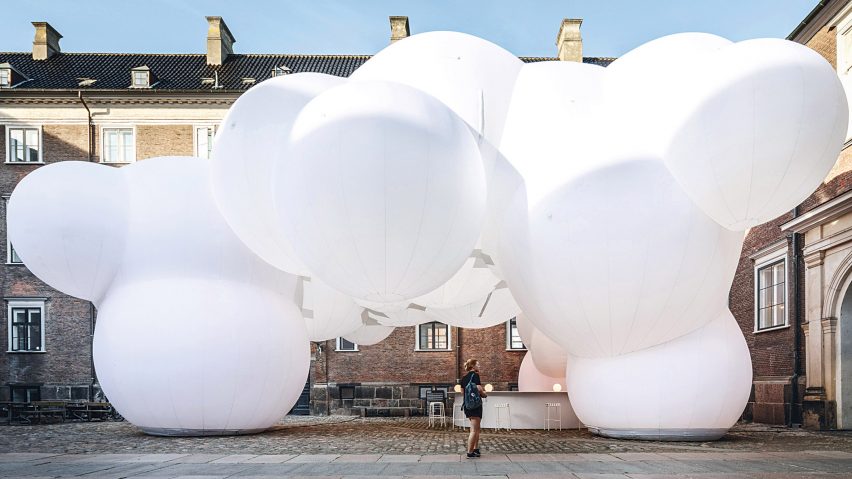
Five "bubbletecture" projects that show innovation in inflatables
Inflatable architecture is back in fashion says Sharon Francis, author of new book Bubbletecture. She picks out five key examples for Dezeen, including an office with an inflatable facade and a pavilion made out of bubbles.
Set to be published by Phaidon next month, Bubbletecture features more than 200 examples of inflatable architecture and design from the 1960s to the present day.
It aims to show how inflatables are being used in increasingly innovative ways.
"While bouncy castles and pool floats might be the populist face of air-filled objects, this book vividly demonstrates that the that the world of inflatables is far richer," Francis told Dezeen.
Here are Francis' picks of the five key projects featured in the book:
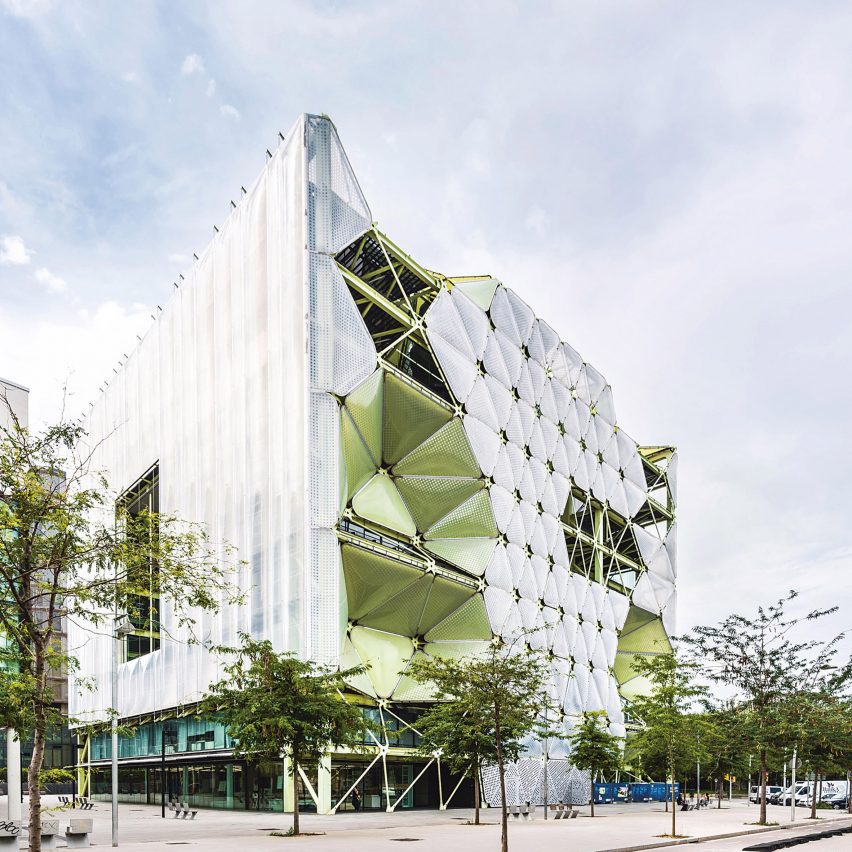
Media-ICT Building, Spain, by Enric Ruiz Geli, 2011
"This project uses ETFE (ethylene tetrafluoroethylene) pneumatic panels – lightweight, transparent layers of film inflated with low-pressure air – to create structural, adjustable, thermally-responsive units.
"The building uses renewable energy sources, a green roof and solar panels to reduce carbon emissions by 95 per cent. It is equipped with multiple temperature sensors that collect exterior information to adjust interior conditions.
"I chose this as a lesser-known example of the use of ETFE panels, as opposed to The Eden Project or the Watercube. This building combines a playful expression with a site-responsive, seriously considered sustainability agenda."
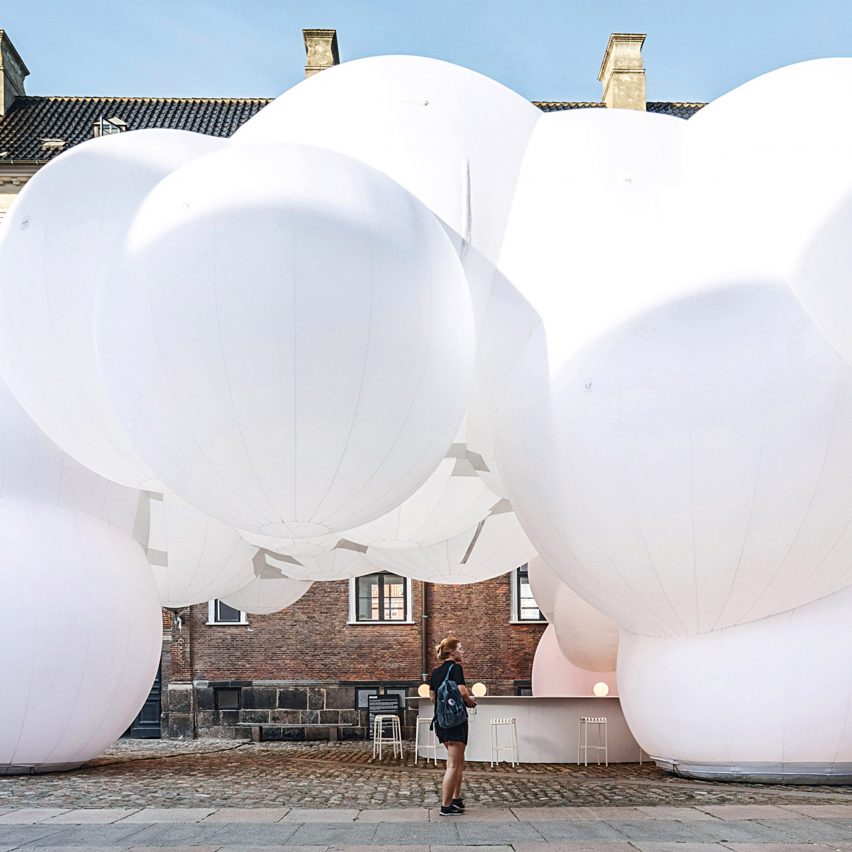
"The bubble forms of this inflatable structure create an arc that is both shelter and beacon. Made of the same material as bouncy castles, it is a whimsical structure reminiscent of childhood playgrounds.
"It can be inflated in just seven minutes and is illuminated by LEDs in a rotating spectrum of colours.
"Architecture practice BIG extends the boundaries of design vision and practice methodology. I chose this because BIG's exploration of them puts inflatables in a very contemporary architectonic context. Plus, it's a fun project!"
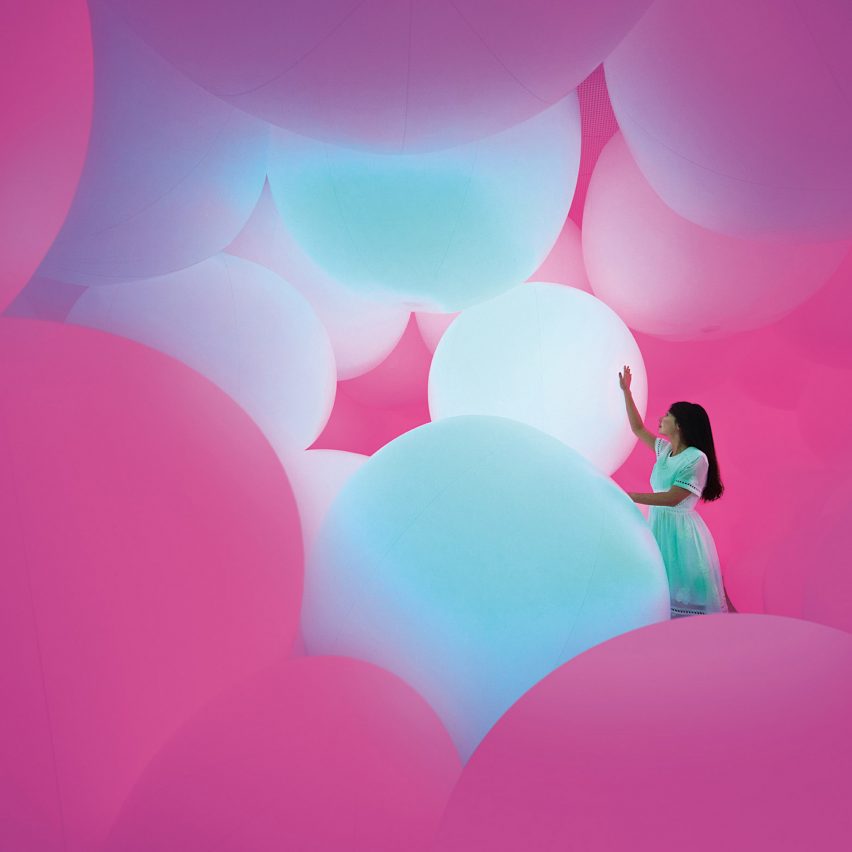
Homogenising and Transforming World by TeamLab, 2014
"This installation by TeamLab explores the idea of human interconnectedness within the digital realm and the capacity of each individual to transform the world in an instant.
"The giant floating orbs contain data-collecting sensors that communicate with each other wirelessly, spreading the data between spheres to create an immersive interactive environment that responds to touch with rippling shifts of colour.
"I find this project delightful. A magical immersive environment is created with a strong conceptual underpinning and the clever integration of technology. I love that the process speaks about human connection."
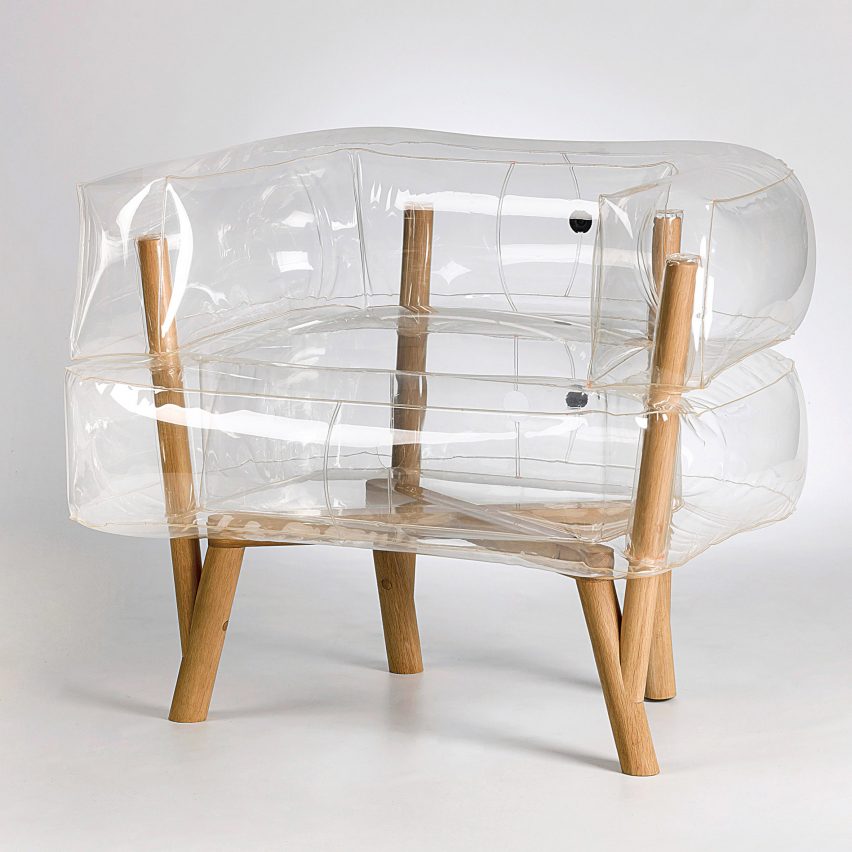
Anda by Tehila Guy, 2014
"Inspired by the blow-up seating of the 1960s, this lightweight chair is a stylish, contemporary take that merges with the whimsy of outdoor pool furniture and the convenience of indoor flat-pack design.
"Structural equilibrium is achieved – and revealed – as the transparent bubble-like cushions apply pressure to the branch-like wooden frame which, in turn, supports the cushions.
"Out of many inflatable seats, I chose this one as it cleverly combines contrasting materiality with structural integrity. It is practical at the same time as elevating a blow-up chair to an elegant piece of furniture."
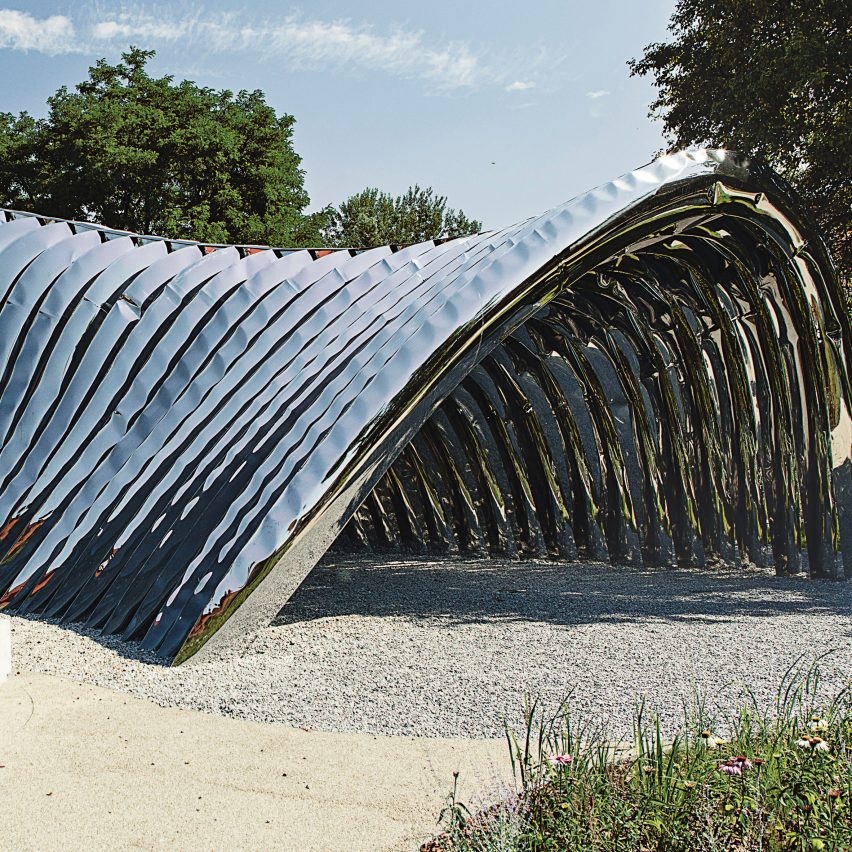
Nawa pavilion, Poland, by Zieta Prozessdesign Studio, 2018
"Comprising 35 highly polished steel arches, this graceful pavilion forms a gateway portal on a small island in Wroclaw, Poland.
"It uses FIDU technology, developed by Zietta, in which two skins of ultra-light steel sheet, welded along the edges, are inflated with compressed air. With a 'controlled loss of control' the durable and stable metal forms take shape.
"Using a process originally developed for furniture manufacture, this project was the first to use the technology at a larger scale. I think the possibilities for future use are fascinating. I also love the controlled randomness of the process."